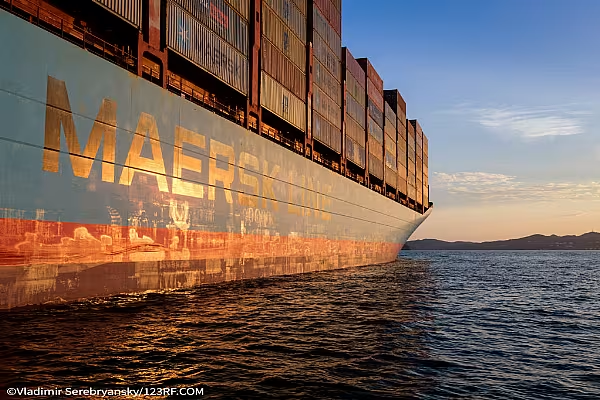Denmark's Maersk will sail almost all container vessels travelling between Asia and Europe through the Suez Canal from now on while diverting only a handful around Africa, a Reuters breakdown of the group's schedule has shown.
Major shipping companies, including container giants Maersk and Hapag-Lloyd, stopped using Red Sea routes and the Suez Canal earlier this month after Yemen's Houthi militant group began targeting vessels, disrupting global trade.
Instead, they rerouted ships around Africa via the Cape of Good Hope to avoid attacks, charging customers extra fees and adding days or weeks to the time it takes to transport goods from Asia to Europe and to the east coast of North America.
But Maersk on Dec. 24 said it was preparing a return to the Red Sea, citing the deployment of a U.S.-led military operation to protect vessels, and on Wednesday released schedules showing ships were headed for Suez in the coming weeks.
A detailed breakdown showed that while Maersk had diverted 26 of its own ships around the Cape of Good Hope in the last 10 days or so, only five more were scheduled to start the same journey.
By contrast, more than 50 Maersk vessels are set to go via Suez in coming weeks, the company's schedule showed.
Mediterranean Shipping Company
But Maersk said alliance partner Mediterranean Shipping Company (MSC) continued to divert all MSC vessels via the Cape of Good Hope for the time being, regardless of date or point of departure and the direction they were sailing in.
MSC did not immediately respond to a request for comment.
Hapag Lloyd
Hapag Lloyd on Wednesday said it still considered the situation too dangerous to pass through the Suez Canal, adding that it planned to review the situation on Friday,
The Suez Canal is used by roughly one-third of global container ship cargo, and re-directing ships around the southern tip of Africa is expected to cost up to $1 million extra in fuel for every round trip between Asia and Northern Europe.
Among a handful of other third-party vessels in Maersk's alliance that were set to sail in the coming weeks, two would be diverted around Africa while the rest would travel via Suez, the schedule showed.
All schedules remain subject to change based on specific contingency plans that may be formed over the coming days, Maersk has said.
The company did not immediately respond to a request for comment.














